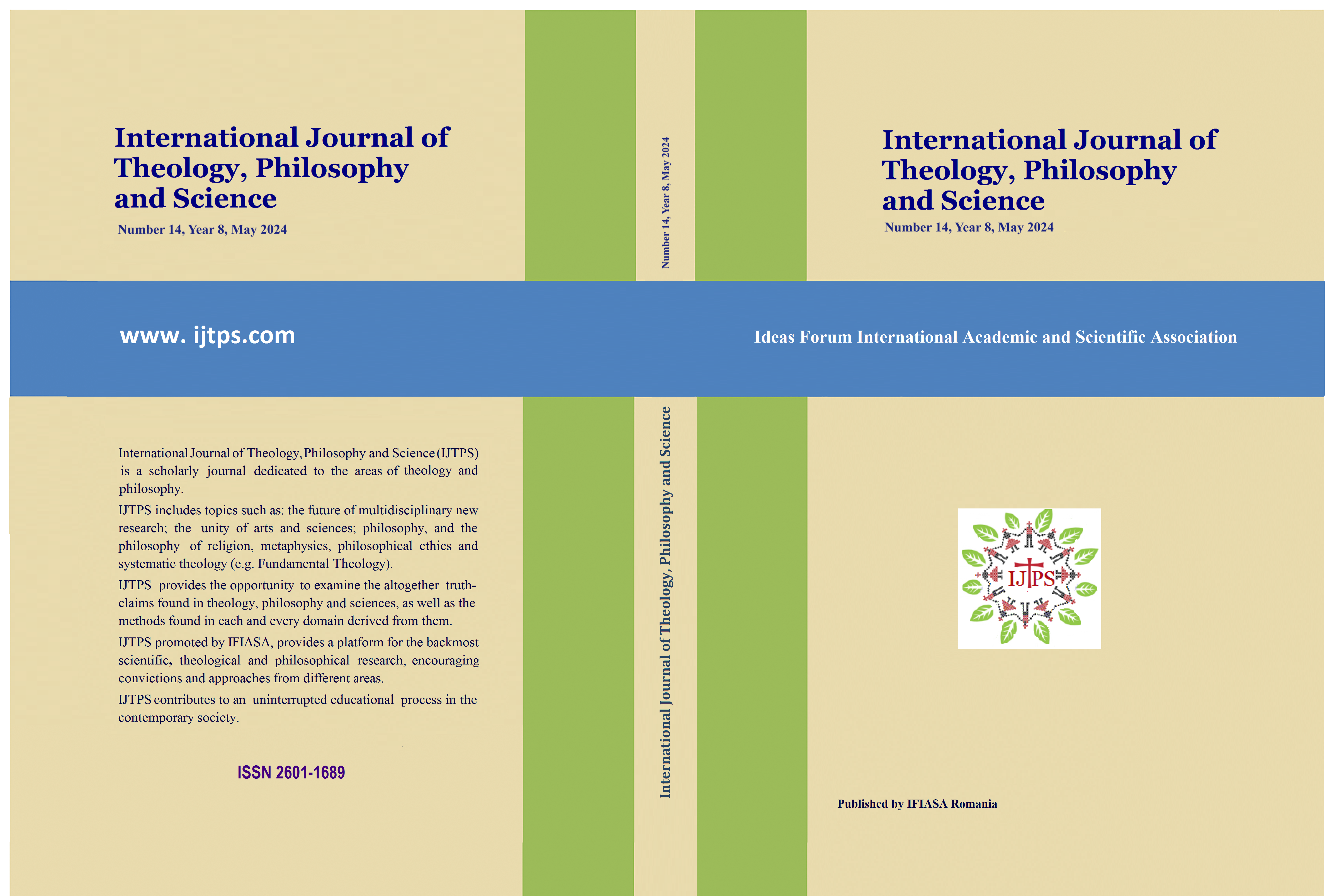THE CONFLUENCE BETWEEN CHRISTIANITY AND NEOPLATONISM: TRIADOLOGY AND ANTHROPOLOGY
THE CONFLUENCE BETWEEN CHRISTIANITY AND NEOPLATONISM: TRIADOLOGY AND ANTHROPOLOGY
Author(s): Nicușor MorlovaSubject(s): Christian Theology and Religion, Philosophy, Ethics / Practical Philosophy, Theology and Religion, Comparative Studies of Religion
Published by: Ideas Forum International Academic and Scientific Association
Keywords: theology; Neoplatonism; triadology; terminology; anthropology;
Summary/Abstract: Was Christianity Hellenized or was philosophy Christianized? It is a dilemma that has sparked numerous discussions and conflicting opinions to this day. This debate revolves mainly around the metaphysics of Greek philosophy, which left Christianity with its entire conceptual arsenal. The close relationship between philosophy and religion in Plotinus' time explains why many philosophers engaged in religion and ethics, but also why many Christian theologians perceived theology as the highest form of philosophy. Viewed contextually, the philosophy of Plotinus, having rich elements of mysticism and definition of divinity, can be considered a true religion. The Church Fathers, having a deep understanding of the limits within which they could operate using the Greek language, the philosophical terminology, as well as the morphological structures and linguistic expressions of their time, highlighted the semantic differences and the conventional nature of these expressions. As deep thinkers and scholars of Greek culture, who admired the beauty of Greek speech, they enriched the traditional terminology with new meanings and used it effectively to introduce new religious concepts and to describe the experience or theory of truth with the greatest possible precision.
Journal: International Journal of Theology, Philosophy and Science
- Issue Year: 8/2024
- Issue No: 14
- Page Range: 27-38
- Page Count: 12
- Language: English

